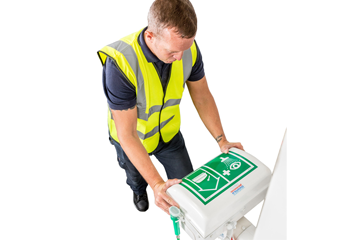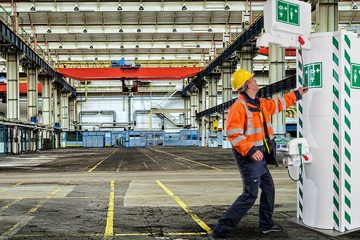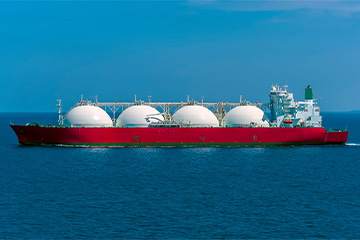Enquiry List () (0)
- 20 Jun 2019
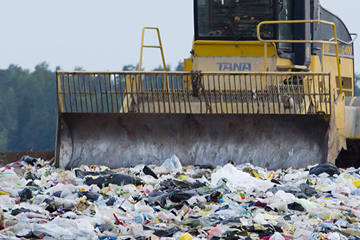
Chemical Hazards in the Waste and Recycling Industry
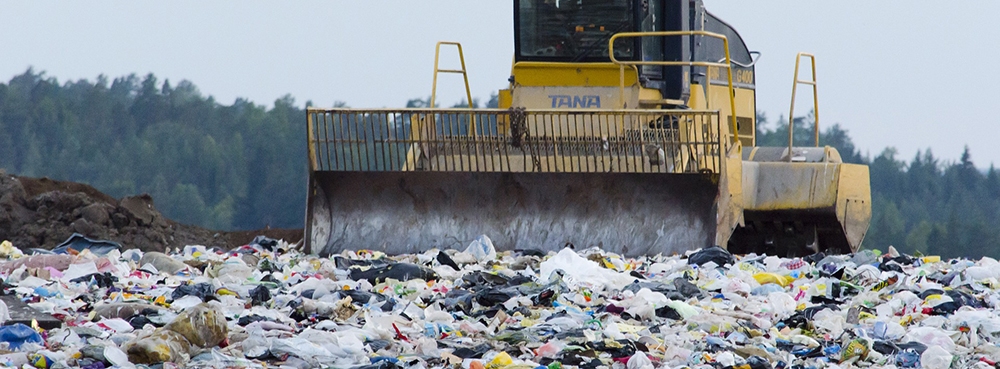
In the UK alone more than 100 million tonnes of waste are generated every year requiring an enormous workforce to sort and process this waste each day. The recycling and waste management industry is constantly growing and developing due to the need for innovative technologies and processes required to deal with increasingly dangerous waste.
Each type of waste needs specific handling procedures to avoid short-term injury or long-term health or environmental impact. Personal protection equipment (PPE) is an essential way of preventing injury in these high-risk environments. Ballistic trousers and cut-resistant gloves are staples in the waste industry to guard against hazards such as glass and tin cans. Hard hats and safety glasses protect workers from debris whilst respiratory equipment is vital for processes involving high levels of dust or fumes.
In areas where the hazard could cause burns or irritation to the skin and eyes, an emergency safety shower and/or eye/face wash unit is vital and should be placed within 10 seconds reach. Not only are they essential to protect the safety of the workforce, decontamination showers also clean harmful materials from PPE, extending its lifetime.
Recycling and waste management is a broad industry sector with differing health and safety considerations:
Landfill
- Household waste can hold hidden dangers. Discarded materials and products could include corrosive, toxic, ignitable, or reactive ingredients that can cause harm: Cleaning products often contain bleach and other highly toxic and corrosive chemicals. When these are incorrectly disposed of, they may spill or splash onto the skin or eyes.
- Dioxins may be present in ash, soil, gas or smoke when burning household waste. Along with other long-term health issues, Dioxin exposure can cause chloracne, a severe skin condition resulting in small, pale yellow skin lesions that may last from weeks to years.
Water Treatment
Hydrofluoric acid, Sodium Hypochlorite, Calcium Hypochlorite and similar chemicals used in water treatment processes can be harmful to workers . These highly corrosive liquids can cause severe burns and must be rinsed off skin, eyes and/or clothes immediately. Contact with wastewater and sludge could lead to absorption of chemicals through the skin causing irritation. Learn more about safety shower considerations on water treatment sites.
Scrap Metal Recycling
A substantial proportion of scrap yard workers have blood lead levels that exceed the thresholds where toxic effects have been known to occur. They may also encounter other hazardous metals and chemicals such as metalworking fluids or chemical baths, Aqua Regia, Hexavalent Chromium and Nickel dust.
Battery Recycling
Recycling batteries involves breaking them down and recovering the material contained within for reuse. Should an accident occur, workers in battery recycling plants may come in to direct contact with numerous dangerous materials including acid, cadmium, mercury and lead.
Renewable Energy
Interest in renewable energy processes has increased over the past decade due to the growing attention to the use of sustainable energy. There are two main processes that utilise waste to create useable gas:
Anaerobic Digestion
Anaerobic digestion is the process by which organic matter such as animal or food waste is broken down to produce biogas and biofertilizer. Find out more about hazard considerations at Anaerobic Digestion plants.
Biomass Gasification
Biomass is made up of waste products from industries such as agriculture, food processing or timber production. Gasification is the thermochemical conversion of an organic material into a valuable gaseous product, called syngas, and a solid product, called char. It converts what can’t be recycled from landfill into a synthetic gas which is controlled and converted to provide energy.
Cleaning liquids, water treatment chemicals and biological agents (storage of feedstock) can all pose a risk. There is also the danger of toxic liquid escaping from the machinery in the gas cooling section. Scrubbing liquor and other media used for dissolution or lubrication of tar covered moving parts (including some industrial degreasers) can be toxic and caustic.
Reducing potential injury with safety showers
Recycling and Waste Management is a complex industry with many potential health and safety risks, hazardous chemicals are no small part of that. It is imperative that workers who are exposed to hazardous substances have easy access to safety showers and eye/face wash equipment in the event of a spill or splash to flush contaminants from their skin, eyes or clothing.
For advice on which showers are suitable for your facility or to request a quote, contact us today.





